On Wednesday, June 9, 2021, at the Casa Rosada, a business meeting was held between the President of the Argentinian Republic, Alberto Fernández, and his European peer, Pedro Sánchez. This bilateral activity had already been announced by Sánchez in the last tour of the Argentinian head of state to Europe, which Fernández carried out from May 8 to 15, 2021.
On that occasion, the head of the Spanish Government advanced, in Madrid, the implementation of the “Plan for the Internationalization of the Iberian Economy in Latin America and the Caribbean”, whose total budget is 4.5 billion euros, in which Argentina will have a place of priority; because, in the words of Sánchez, now from Buenos Aires: “Spain and Spanish companies are betting on Argentina and this visit shows mutual support in many areas, both in the Paris Club and in the IMF.”
Declarations of mutual support
In the morning, the Spanish president communicated from his Twitter account that: “We started an intense agenda in Buenos Aires, with the meeting with the president @alferdez. Spain wants to show its solidarity with the Government and the people of Argentina in these difficult times due to Covid19. They have our support to overcome present and future challenges.”
During the press conference, Sánchez stated: “Europe can be a great ally of the Latin American region. Spain will always be on the side of Argentina in its conversations with the Monetary Fund and the Paris Club. The support is absolute”, in what symbolizes a new boost to Argentina’s negotiating position for the foreign debt with international creditors.
The Spanish president also stated that: “In order to definitively overcome the pandemic, vaccination must be accelerated throughout the world. We advocate liberalizing patents, but we must do much more. With rigorous and supportive proposals, Argentina and Spain are going to lead this debate in the international community”.
Finally, Sánchez said: “Argentina and Spain are brother countries. We are united by the links of history, the same cultural space. Spanish companies are betting on the Argentinian market and we will continue to strengthen commercial ties after Covid19. The best moment for both countries is yet to come.”
For his part, the South American president, in front of the national and international press, stressed that Argentina and Spain have an “unique opportunity to understand each other and be able to advance” in bilateral relations and stressed that Spanish companies “have all the possibilities to continue investing” in the southern country. Likewise, he called for making links “even more solid” and “joining forces on one side of the Atlantic and the other”.
Regarding Argentina’s negotiations with the IMF and the Paris Club, Fernández said: “I want to thank the government of Spain and dear Pedro for their support with private creditors, with the International Monetary Fund and the Paris Club. He always backed our claims. It happens to middle-income countries that we are growing without them paying attention to us. Many think that we are developing countries, but in these countries, poverty is concentrating. The economy as we knew it was not the best version,” stated the Argentine president.
Once the official activities were finished, which included a visit to the Museum of Memory and Human Rights (formerly the Mechanics School of the Argentine Navy ESMA, in Spanish), where the largest clandestine detention, torture and extermination center of the last civic dictatorship operated Argentine military (1976-1983) and meetings of Pedro Sánchez with the Spanish community residing in Argentina (about 500,000 people); President Fernández sent several tweets:
“I was pleased to receive the President of Spain, @ Sánchezcastejon. It is a great joy to have the visit of a friend with whom we have the vocation to change the world in the same way. I want to thank you; just like today, Spain was always by our side”.
“We met with businessmen from both countries. With the president @ Sánchezcastejon we always talk about thinking about the day after the pandemic and working for a better life for our peoples and for Spanish and Argentine companies to continue investing and creating jobs”.
On this occasion, the journalists present at the press conference also took the opportunity to ask questions about domestic and international political situations, very specifically. Although they did not speak anything about Venezuela, they did ask Fernández for his opinion about the elections in Peru, who said that he “celebrates the elections in Peru” and that if Castillo were elected “today wait for my call to congratulate him and make me available to him to work together”.
In Sánchez’s case, Spanish journalists asked about the presidential pardons to Catalan politicians who were involved in the 2017 independence process, known as el procés (“the process” in Catalan). At all times, Sánchez avoided showing anger or discomfort at the questions and answered without avoiding any issue: “any step-in favor of detente is welcome” (…) We have to bet on repairing the mistakes of 2017. Thanks to that we will allow the Catalan society to meet again. Despite the objections, I ask for understanding and magnanimity because the objective is worth it”, concluded the European head of government.
Economic agenda
As announced last month in Madrid, Sánchez’ meeting with Fernández saw the two pursue the development of an intense economic agenda, which involved, on the one hand, a strong bilateral trade surplus for the South American country, that is, with a favorable balance to Buenos Aires: in 2018, the deficit for Spain was 586 million euros, in 2019, 851 million euros, in 2020, already in the pandemic context, it was 702 million euros, and, in the first quarter of In 2021, the balance was in deficit of 157 million euros, against 89 million for the same period in 2020.
On the other hand, foreign direct investments (FDI), which, although they occur on both sides of the Atlantic Ocean, apparently also benefit Argentina. In this sense, Spain is the second direct foreign investor in the southern country (only surpassed by Brazil) with more than 300 Spanish companies installed in the South American country, working in the sectors of: financial services, telecommunications, metallurgy, energy and gas, food industry, and manufacture of iron and steel products, among others.
According to a report from the southern Foreign Ministry, which was released by Télam, the official Argentine government agency, in 2021, the southern country “ranks 39 in the list of places of origin of imports from Spain and, conversely, the place 49 in the payroll of destination of Iberian exports. But the central fact (continues to be) that Spain is the second foreign investor in Argentina, and the country is the sixth destination for Spanish foreign investments”.
The report of the National Directorate for the Promotion of Investments of the Argentine Foreign Ministry, “accounts for a series of ‘greenfield’ investments by item, which Spanish capitals made in Argentine territory from 2013 to the present.” It is worth clarifying that the so-called ‘greenfield’ are the FDI that come from a central house (parent company) that starts its operations in another country from scratch, so they represent absolute profit for the host nation, for example, in: headquarters construction, technology transfer and hiring of personnel.
In this list of “greenfield investments”, which has a history of just over seven years, the main arrival of Spanish capital to Argentina was in retail trade (12 projects), travel and leisure (9), in computers and software (7), in banks, insurance and the financial system (5) and in professional services (4).
Similarly, Spanish businessmen directed their investments “to the purchase, in whole or in part, of firms located in Argentina, at least eight times since 2013. These operations corresponded in three cases to computer and software companies, in two to professional services, and in one to horticulture and agriculture, to mining and extraction, and to food products and tobacco”.
Regarding Argentine exports to Spain, five items concentrated, in 2020, just over 81% of total sales: waste and waste from the food industry and prepared animal feed reached 38%, and fish, crustaceans and mollusks reached 30% of the total. The other three strong items were edible fruits and fruits plus citrus (4.7%), food vegetables, plants, roots and tubers (4.1%) and oil seeds and fruits and industrial and medicinal plants (3.4%).
On the Argentinian side, the Public Private Council for the Promotion of Exports (CPPPE), which aims to define the Argentine exportable supply and identify target markets, considers that Spain can be a strong place for the sale of food and beverage industries, metalworking, grapes in fresh and raisins and other derivatives of fishing, in addition to those already placed in the peninsula.
Conversely, Spain supplies Argentina, at least in part, with machines and mechanical appliances (15% of its exports), pharmaceutical products (6.9%), machines, appliances and electrical material, recording and reproduction equipment of sound and image and parts and accessories of these devices (6.9%), organic chemical products (6.2%) and automobiles, tractors and parts and accessories (5.6%).
When Spain’s investments in Argentina are reviewed, three companies concentrate almost all the most important volumes: Banco Santander and Telefónica in successive operations since 2013, and BBVA, with a single operation, but of 250 million dollars in 2017.
There are also 44 companies with total or partial acquisition projects or offers, also led by Santander and Telefónica and followed by Pontegadea Inversiones, Banco Bilbao Vizcaya, Distribuidora Internacional de Alimentos, Globalia Corporación Internacional, Iberostar Hoteles, Tecpetrol, Grupo Santillana, Riu Hoteles and Industrias Lácteas Asturiana, among others.
Finally, the Argentine Foreign Ministry presented the 2021 Export Promotion Plan on April 14, 2021, which includes 657 commercial actions that will be carried out during the current year. This Plan, prepared by the Undersecretariat for the Promotion of Trade and Investments, based on joint work with more than 240 business chambers, gives an account of the priority destinations for the placement of the products of the southern country in the world:
Argentinian Export Promotion Plan 2021

Source: Argentine Foreign Ministry (2021)
Final thoughts
Within the framework of an incipient improvement in some countries of capitalist global economic centers, among which is Europe, it’s clear that Spain seeks to shore up its investments and its asymmetric commercial relations with Latin America. In this sense, as President Pedro Sánchez himself has said, the priority to reestablish health in the capitalist system is: 1) vaccines for middle- or low-income countries, since, as a consequence, will come the 2) economic recovery.
For Spain, the economic relations with the countries of Latin America and the Caribbean will always be beneficial, because, although the numbers show deficit trade balances, the Latin American productive matrix continues to depend on raw materials or semi-industrialized products, with few exceptions. The Argentine economic model has not been diversified or developed enough yet and the southern country continues to be tied to the logic of the agro-export, quasi-primary and extractives model.
For its part, Spain receives large profits from its alliances in strategic sectors, such as public services, including telecommunications, gas or transportation, or as private financial services, which are those that favor both a greater accumulation of financial (and productive capital, for example, through credits to the productive sectors) as well as speculation and tax evasion, including capital flight.
Among other things, for this reason, when a journalist from the right-wing Argentine newspaper La Nación asked both leaders if the Spanish business community had told them that inflation and labor laws in the southern country were obstacles to European investments in Argentina; Sánchez flatly denied such a thing, while Fernández said “several Spanish businessmen have been in Argentina for decades, and they know better than us how the country works.” It should not be forgotten that economic asymmetries will always favor the strongest, in this case, Spain.
In another vein, we can argue that the business meeting between Argentina and Spain has served to appreciate in full action the political pragmatism of Alberto Fernández. The Argentinian president – on repeated opportunities during the official activity – reaffirmed his “Europeanist” vision over the Cosmovision of Our America; Fernández has said things as sensitive as: “Mexicans came from the Indians, Brazilians came from the jungle and Argentines came from ships”, an idea that completely ignores the history and indigenous and African roots of Argentina, a country that doesn’t recognize pluri-nationalities as mostly of the rest of Latin-American countries.
From a discursive point of view, we know it’s perfectly valid to highlight the ties that – without a doubt – unite Argentina with Europe, in particular with Spain, which is, after Italy, the second country with the largest number of European immigrants that the South American country received during different migratory waves of the 19th and 20th centuries; However, saying that, from Buenos Aires, without making a single mention of the other cultural roots that built Argentina, such as the native peoples and the enslaved African brothers and sisters, continues to distance Fernández from the Argentina, the Latin American and Caribbean people (more even than his own academic language and pragmatic positions in our region).
Of course, this sensitive issue raised a stir on social networks that tweets and memes exploded in response to the mention of the Argentine president, who decided to apologize in this way:
“It was stated more than once that ‘we Argentinians descend from the boats’. In the first half of the 20th century, we received more than 5 million immigrants who lived with our native peoples. Our diversity is a pride. (…) I did not want to offend anyone, in any case, who has felt offended or made invisible, since now my apologies”.
Obviously, the apologies were not enough and the situation was used so that sectors of the right, which are openly racists, criticized the words of the Argentinian president, in and outside the Latin American country. Even the president of Brazil, Jair Bolsonaro, posted a photo of him on Twitter, where he appeared surrounded by indigenous Brazilians, with the word “SELVA!” in capital letters next to a Brazilian flag. This seems anecdotal, ended up erasing all prominence to the Business Meeting between Argentina and Spain.







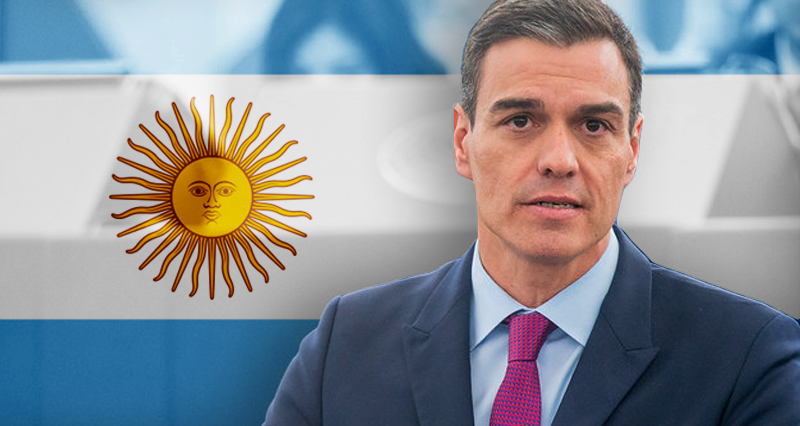

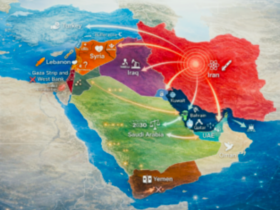
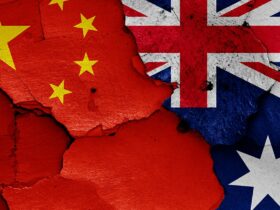

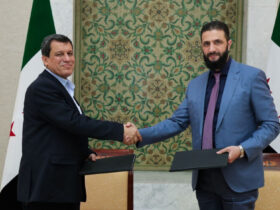
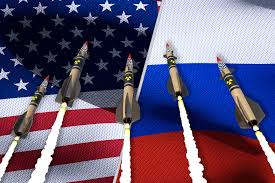
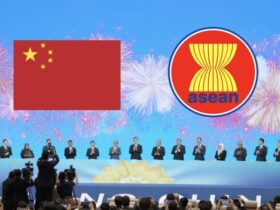
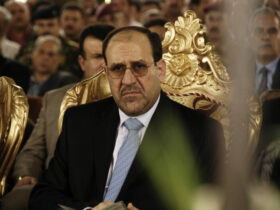

Leave a Reply